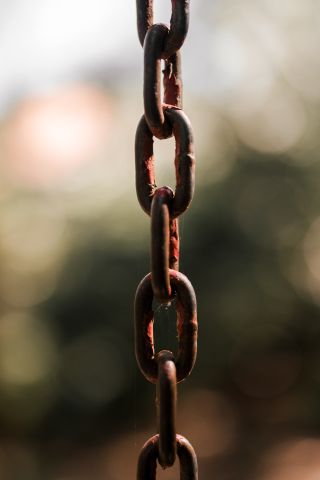The Heritability of Callous and Unemotional Traits. Like grandfather, like mother, like daughter. Reviewed by Michelle Quirk

KEY POINTS-
- Genetic research suggests modest to high heritability of psychopathic traits.
- Research concerning the relative contributions of genetic, environmental, and nurturing components is in flux.
- Parents with psychopathic tendencies have a greater chance of raising children with psychopathic propensities.
As I grew up, I noticed that my mother's and my sister’s personalities were very similar. They were uncaring and indifferent to other people’s feelings. They were bold, always insisting they were right, and never bothered about anything they did wrong. My father, a man of few words, confided to me, “Your mother and sister are the same.” In the last years of his life, he told me that when my sister was a baby, she would never look at him and never showed any feeling or emotion for him.
Affective facet traits from the PCL-R
According to the Hare Psychopathy Checklist–Revised (PCL-R), the gold standard for determining the likely existence of psychopathy, these types of behavior constitute callous unemotional traits, which comprise the "affective facet" in the checklist's four-factor model of psychopathic traits. The affective facet includes the following traits: lack of remorse or guilt, shallow affect, callous/lack of empathy, and failure to accept responsibility for one's own actions.1

Genetic research on heritability of affective traits
Research over the last few years suggests that these types of behaviors may be heritable and can be linked in many cases to psychopathic personality disorder. Researchers consider such behaviors to be “callous, unemotional” traits ("CU traits"), which are core symptoms of psychopathy.2 They are reported to be a “developmental precursor to psychopathy.”3
In a recent analysis of various studies, the authors noted that “genetic research suggests modest to high heritability of psychopathic traits.”4 Disruptive behavior by children who demonstrate high levels of CU traits appears to be strongly heritable.5 Another study noted that children with high levels of CU traits did not establish eye contact with their caregiver.6 A 2019 review of heritability studies noted that some research findings concluded that the impact of heritability could be as high as 80 percent.7
The possibility of intergenerational transmission of psychopathic traits
If heritability matters, then it may be possible for intergenerational transmission to be related to genetic factors. Such research remains to be done, but current evidence has shown that “parents with psychopathic tendencies have a greater chance of raising children with propensities to psychopathy.”8 The present state of research concerning the relative contributions of genetic, environmental, and nurturing components is in flux.
What intergenerational transmission might look like
I have personally witnessed in my own family a possible intergenerational influence of CU traits. My maternal grandfather, a self-absorbed man, displayed all the CU traits mentioned previously. He would walk past his own family members without uttering a word or greeting. He paid no heed to anyone in his immediate surroundings. He was uncaring and remained a stranger to those closest to him. He came and went as he pleased, living his life as he wanted. Other people's feelings were of no concern to him. A small incident repeated every year reveals volumes about his character. He showed no kindness or regard for his wife, my grandmother, on her birthday, walking right past her as he always did, without even a greeting. Every year, she cried with no explanation as to why her husband was the way he was. When she died, he fell asleep at her wake. When asked how he was doing, he was reported as saying that he missed his cats. After the death of his wife, their cats ran away—never to return home again. Perhaps they sensed his lack of concern for their well-being.
No family member would have characterized my grandfather as having CU traits. Instead, they could only shake their heads and wonder what was wrong with this self-centered man who was most peculiar. No one could figure it out.
In light of what we suspect about intergenerational transmission, it certainly is possible that my maternal grandfather carried traits that influenced my mother's and sister’s personality disorders. This cannot, however, be stated definitively because of the interplay of so many other factors—impacts of nurturing and other societal forces. Only more probing and creative research may be able to tease out the genetic from these other factors.
- Questions and Answers
- Opinion
- Motivational and Inspiring Story
- Technology
- Live and Let live
- Focus
- Geopolitics
- Military-Arms/Equipment
- Security
- Economy
- Beasts of Nations
- Machine Tools-The “Mother Industry”
- Art
- Causes
- Crafts
- Dance
- Drinks
- Film/Movie
- Fitness
- Food
- Games
- Gardening
- Health
- Home
- Literature
- Music
- Networking
- Other
- Party
- Religion
- Shopping
- Sports
- Theater
- Health and Wellness
- News
- Culture

